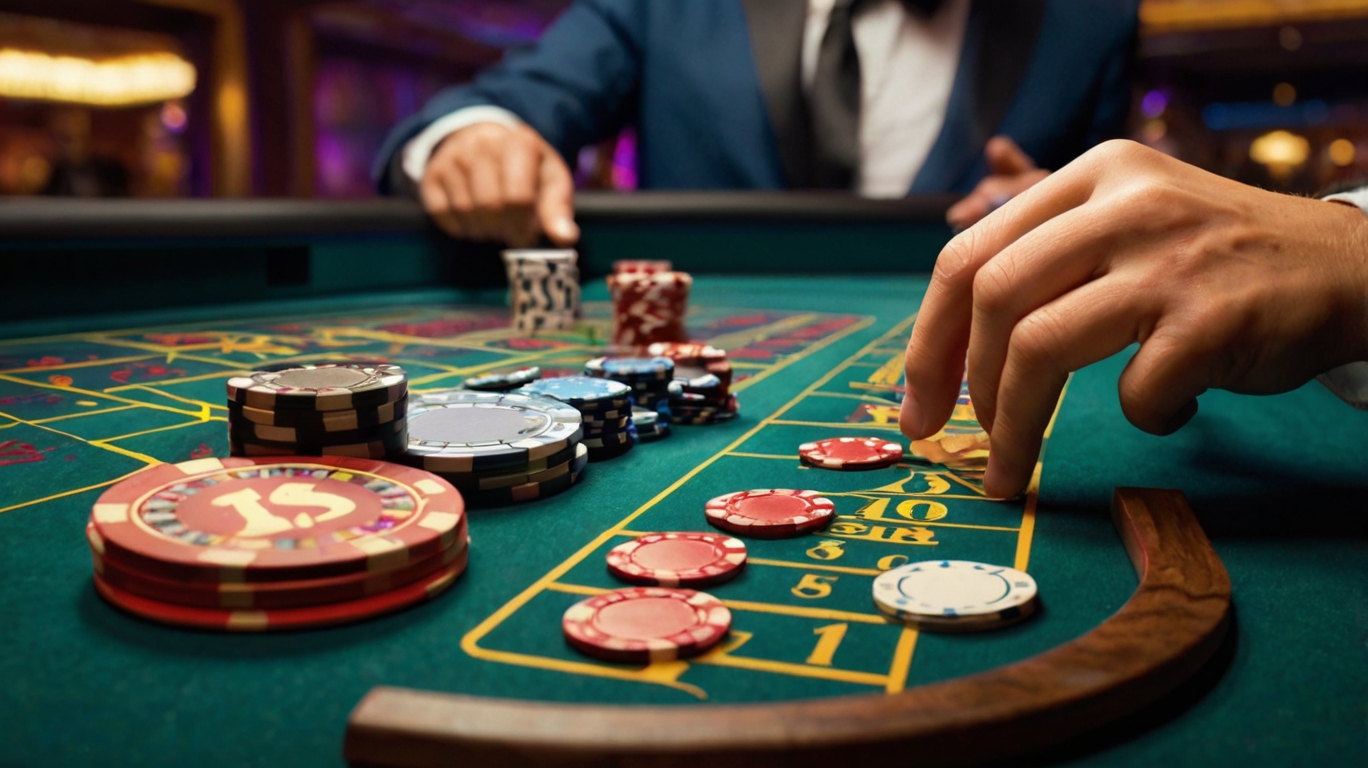Why Mathematics Matters in Gambling
At first glance, casino games may look like pure luck. Yet behind every spin of the roulette wheel, every shuffle of cards, and every slot machine result lies a complex mathematical framework. Understanding these probabilities can help players evaluate whether a bet is worthwhile or if it simply feeds into the casino’s built-in advantage.
Bookmakers express probability through odds, which can take different forms—fractional, decimal, or American. While each format looks different, they all represent the same underlying probability of an event occurring. Once a player learns to interpret these odds correctly, it becomes easier to judge whether a wager has real value.
Behind every casino game lies mathematics—probabilities, expected value, and randomness that define how outcomes unfold. Understanding these concepts helps players make smarter choices and see gambling beyond luck alone. For example, slot payouts and roulette odds are governed by clear formulas that shape winning chances. At the same time, competition adds another layer of strategy. Just as probability guides individual games, tournaments demand planning and adaptability to beat rivals. Learn more in online casino tournaments explained. Together, probability and competition show that gambling is not just chance—it’s a blend of math, skill, and strategic thinking.
Types of Odds
Fractional Odds
Common in the UK and Ireland, these are expressed as fractions (e.g., 5/1). This means that for every €1 wagered, you can win €5 in profit.
Decimal Odds
Widely used across Europe, decimal odds show the total payout, including your stake. For example, odds of 6.00 mean that a €1 bet returns €6 in total.
American Odds
In the U.S., odds are shown as positive or negative numbers. A positive value (e.g., 500) means a €100 bet wins €500, while a negative value (e.g., -200) shows how much you need to wager to win €100.
RTP and Volatility: The Math of Casino Games
Two key mathematical concepts define casino outcomes: RTP (Return to Player) and Volatility.
-
RTP is the percentage of total stakes a game returns to players over time. A slot with 95% RTP means that for every €100 wagered, €95 is returned to players on average, while €5 stays with the casino.
-
Volatility measures how frequently and how much a game pays out:
-
Low volatility: frequent but small wins.
-
High volatility: rare but big payouts.
-
Medium volatility: a balance between the two extremes.
-
Together, RTP and volatility explain why certain games feel riskier or more rewarding than others.
The House Edge: Why the Casino Always Wins (in the Long Run)
Every casino game is designed with a built-in mathematical advantage called the house edge. This ensures that while players may win occasionally, the casino profits consistently over time.
For example:
-
Roulette has an edge due to the green zero slot.
-
Slots vary in house edge but always tilt slightly in the casino’s favor.
-
Games like blackjack or video poker offer lower house edges, making them more favorable for skilled players.
The house edge is the invisible but constant factor that shapes every outcome.
Strategies to Improve Your Chances
While no strategy eliminates the house advantage, informed play can increase efficiency and extend playtime. Here are five ways to make probability work in your favor:
-
Learn the rules thoroughly – Understanding a game’s dynamics helps you make smarter decisions.
-
Manage your bankroll – Setting spending limits keeps losses under control.
-
Use promotions wisely – Free spins or no-deposit bonuses (e.g., €50 free play) provide risk-free practice.
-
Choose low-edge games – Blackjack and video poker typically offer better long-term value than high-volatility slots.
-
Practice with free games – Free-to-play versions let you refine your strategy before risking real money.
Statistical Benefits for Experienced Players
Casino games aren’t just entertainment—they’re statistical systems. By studying patterns, RTP rates, and volatility, experienced players can refine their betting strategies.
Italy’s online gambling market alone counts over 22 million players, many of whom rely on probability-based approaches to maximize their performance. Understanding statistics transforms gambling from blind luck into a calculated game of risk and reward.
Value Bets: Spotting Opportunities
A Value Bet occurs when the odds offered by bookmakers are higher than the actual probability of an event happening. This often happens due to:
-
Algorithmic limitations – automated systems fail to account for unexpected factors.
-
Human miscalculations – bookmakers underestimate or overestimate an event’s likelihood.
-
Market bias – high betting volumes on popular outcomes distort real probabilities.
-
Neglected secondary markets – where bookmakers pay less attention and make errors.
By identifying value bets, skilled players can gain an edge by capitalizing on mispriced odds.
The Mathematics of Chance
At the heart of every casino experience lies probability. Luck always plays its part, but seasoned gamblers know that mathematics tells the real story. Each outcome is shaped by calculations, risk management, and strategic decision-making.
Casino games are more than just random rolls of dice—they’re structured systems where probability and choice intertwine. Recognizing this balance is what separates casual players from those who approach gambling with analytical precision.
Conclusion
Mathematics and probability are the invisible engines of casino games. From RTP and volatility to the ever-present house edge, understanding the numbers behind the games helps players make more informed choices.
Probability and mathematics define every casino game, shaping odds, house edge, and expected returns. Players who understand these concepts approach gambling with sharper strategies and more realistic expectations. Yet, beyond numbers, personalization also influences the experience. Just as probabilities define fairness, AI adapts games to individual habits, tailoring entertainment. Discover how in AI personalization in casinos. Together, probability and AI show how mathematics and technology merge to make online gambling both transparent and engaging.
While luck can deliver wins, knowledge of probability offers long-term insight—turning casino games from simple entertainment into a fascinating exploration of chance, strategy, and statistics.

